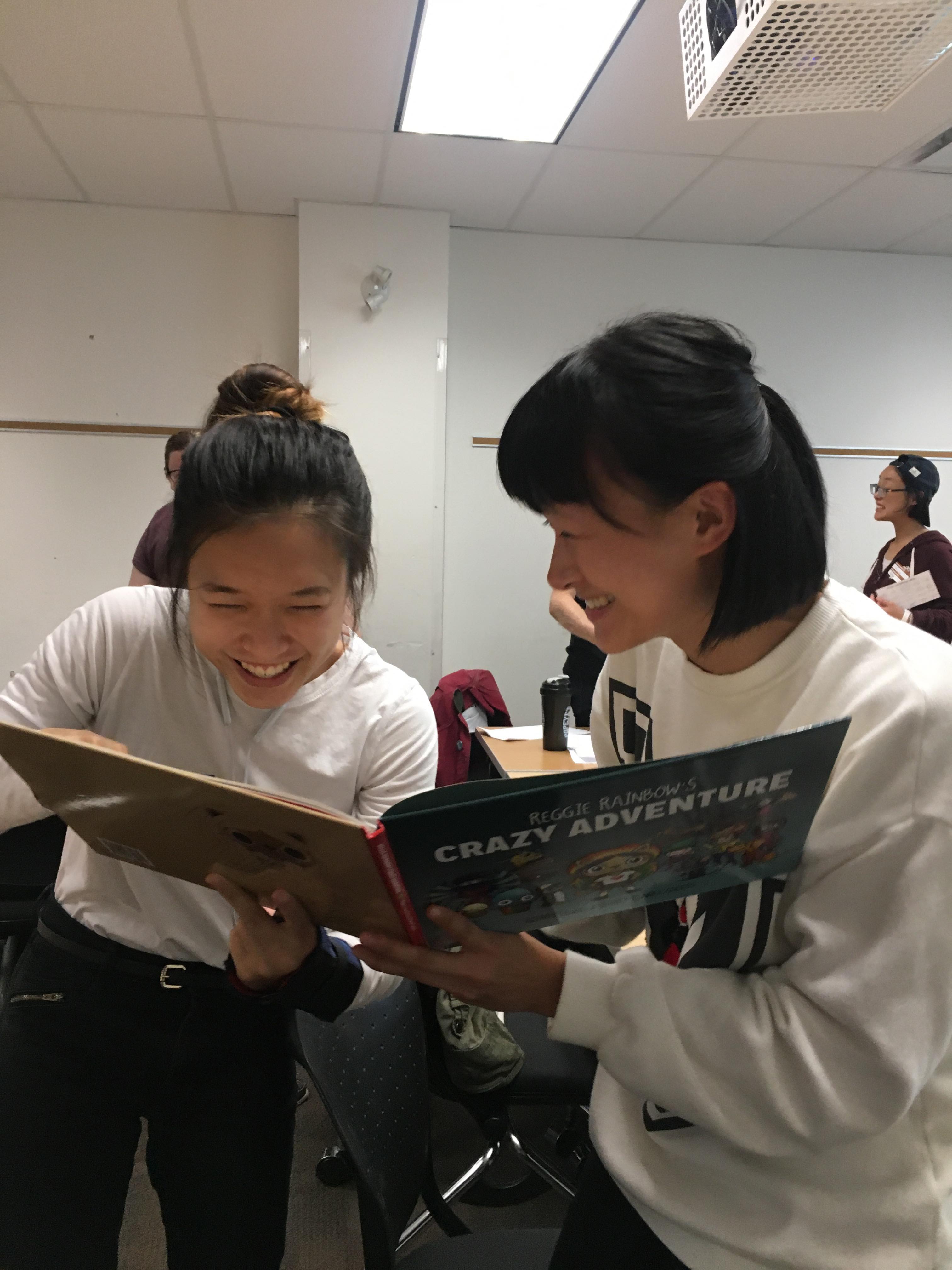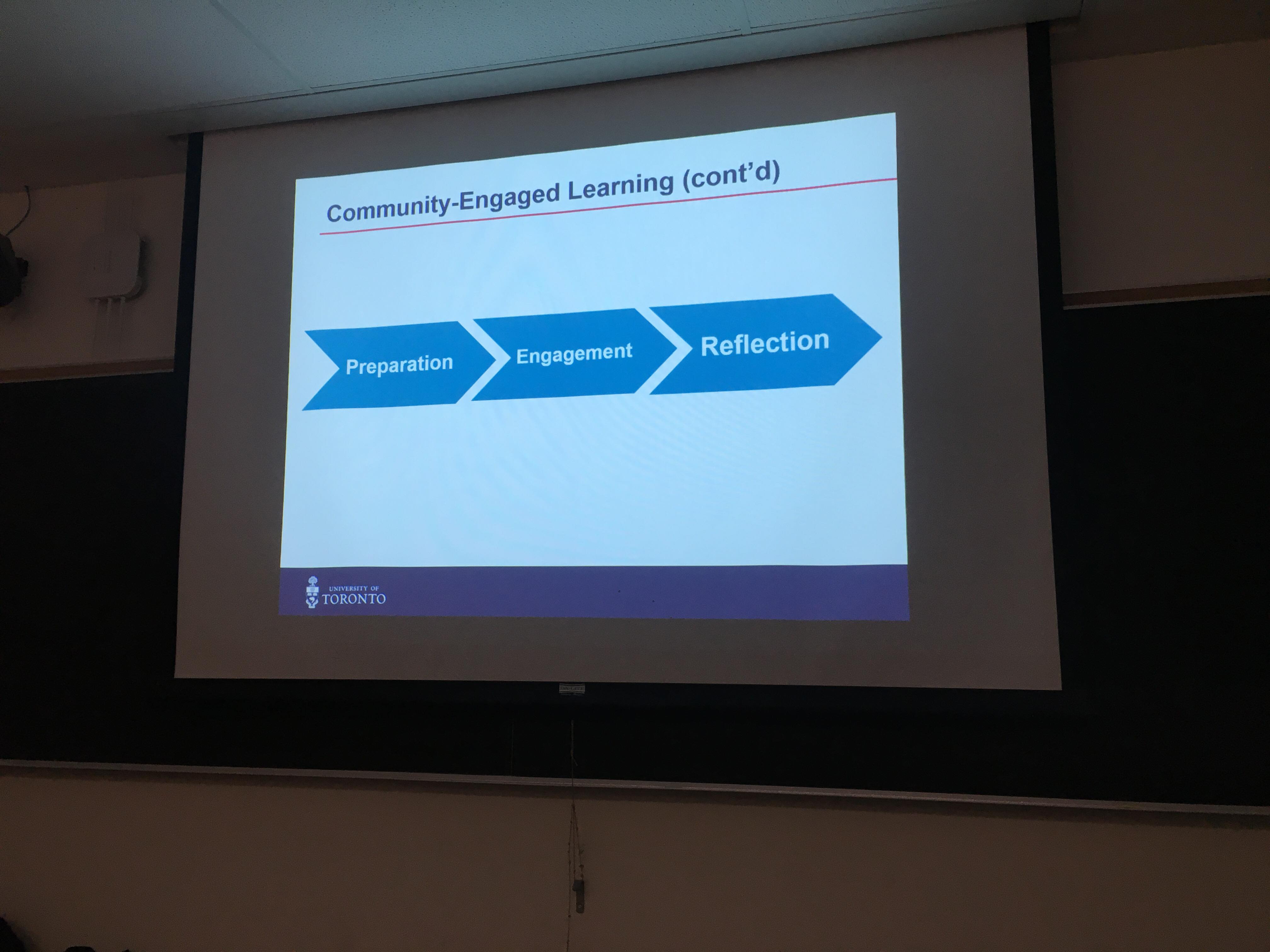Written by: Vivian Li
I really loved my experience with Alternative Reading Week (ARW) last year, so I decided to get more involved with ARW by becoming a project leader. In preparation for the three-day volunteer event in November, I attended an orientation session on Saturday. We talked about equity, privilege, and allyship, as well as how we can help students in our team feel like they belong. The training was very hands-on and it was interesting to see ARW from behind-the-scenes CE, as well, it also gave me a lot of ideas about how I can approach future event planning initiatives!
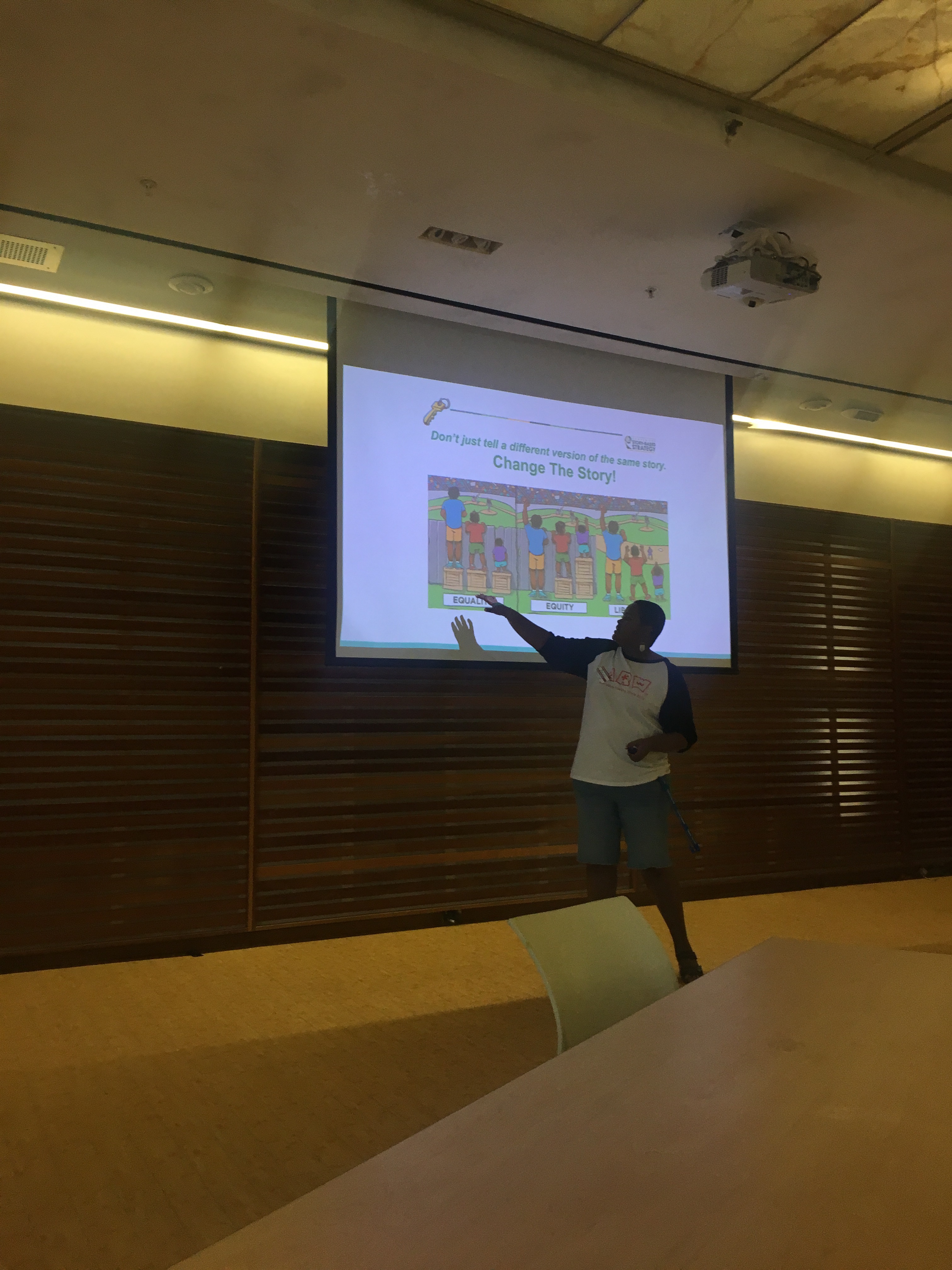 EQUALITY, EQUITY, AND LIBERATION
EQUALITY, EQUITY, AND LIBERATIONOne of the most interesting moments of the training was when we got into groups and drew the traits of an ideal project leader. For my team, we thought that listening (represented by large ears) encouragement (we gave our imaginary project leader a thumbs up on her shirt), positivity (a large smile), and juggling multiple things was important for a project leader (we considered drawing multiple arms but decided against it). Some other groups talked about having being caring (a large heart), observant (dark, peering eyes), and prepared (with a fanny pack).
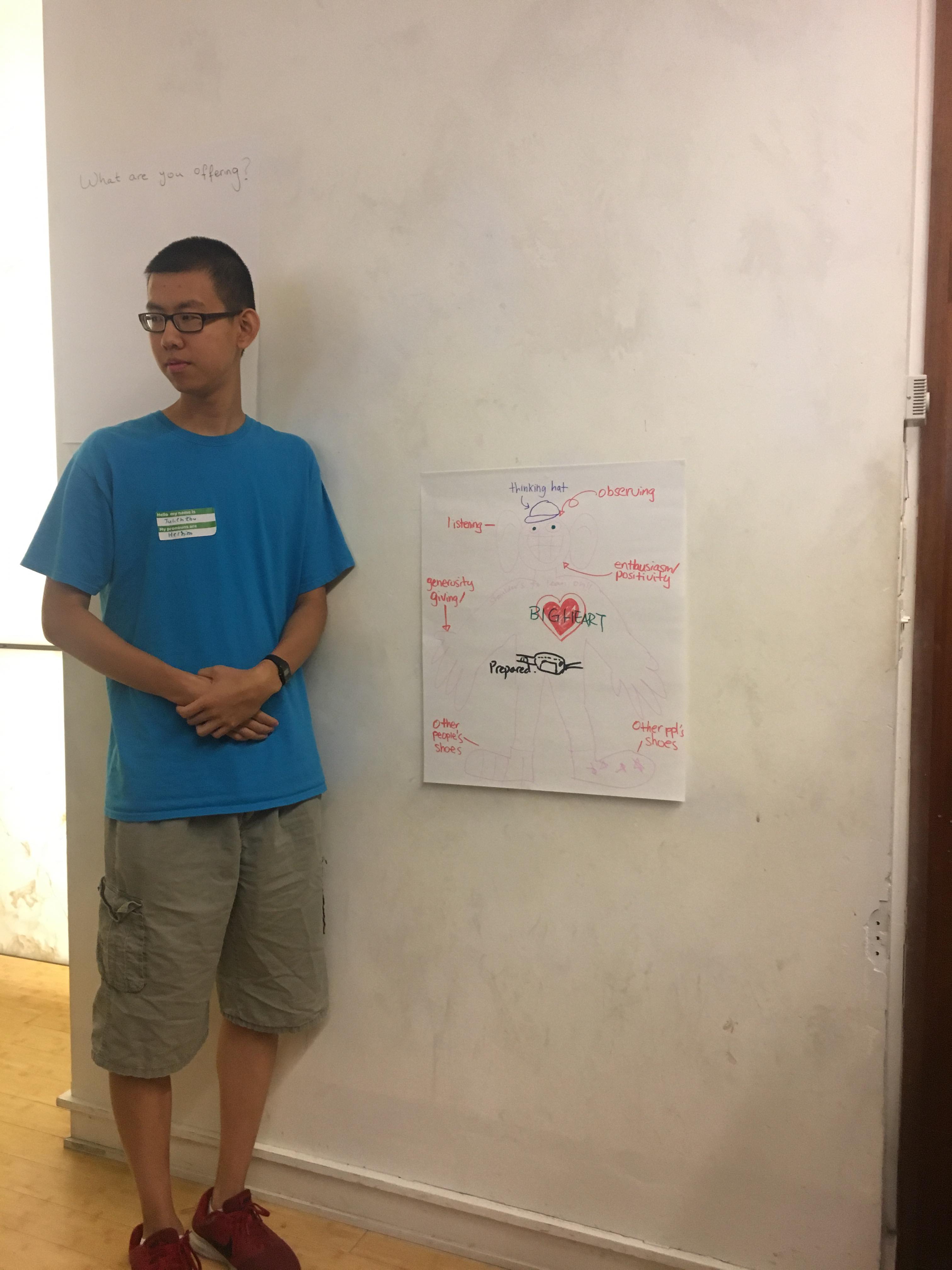 TRAITS OF GOOD PROJECT LEADERS
TRAITS OF GOOD PROJECT LEADERSWe also looked over different projects, wrote down our top three choices, and made a skit based on what we’ll be doing in the future! For example, one of the teams demonstrated the worst situation possible, which left the project leader all alone, while the other team represented the worst and best situations when contacting community partners. Some take-aways for me is that it’s really important to ensure that everyone participating knows what they’ll be doing beforehand, that the students are comfortable with each other, and that (more practically), emailing community partners during the evening will make sure your message comes up first for them the next morning.
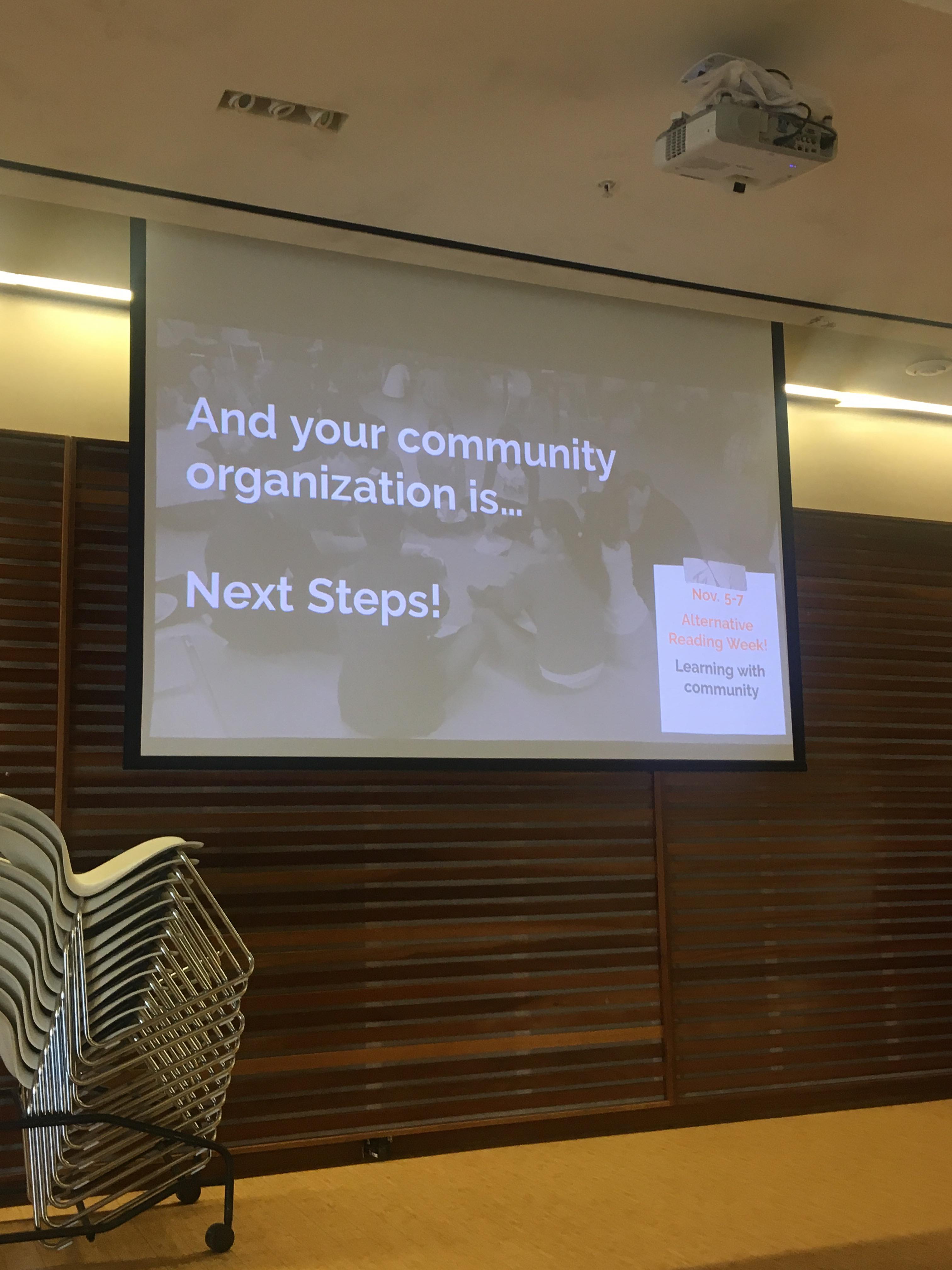 WHAT ARE YOUR NEXT STEPS WITH COMMUNITY ENGAGEMENT?
WHAT ARE YOUR NEXT STEPS WITH COMMUNITY ENGAGEMENT?However, for me, one of the most important moments was when it was time to reflect. We were given small notebooks to write a letter from ourselves in the present to us in the future about what we want to learn by next February, but my letter somehow became one from a far-away future directed towards who I wish to be in February. I’ve always been a sensitive person and I’ve been having trouble handling my emotions, schoolwork, and family relationships recently. I’m also struggling to learn how to care for and love myself unconditionally (even on my worst days). So it was very important for me to talk about the future having a future, and including everything that I love to do in it when I’m in a stable state. I signed it, “Warmest wishes and with LOTS of love, Vivian :).” I hope that by taking little steps like these, I’ll be able to shift something within me.

